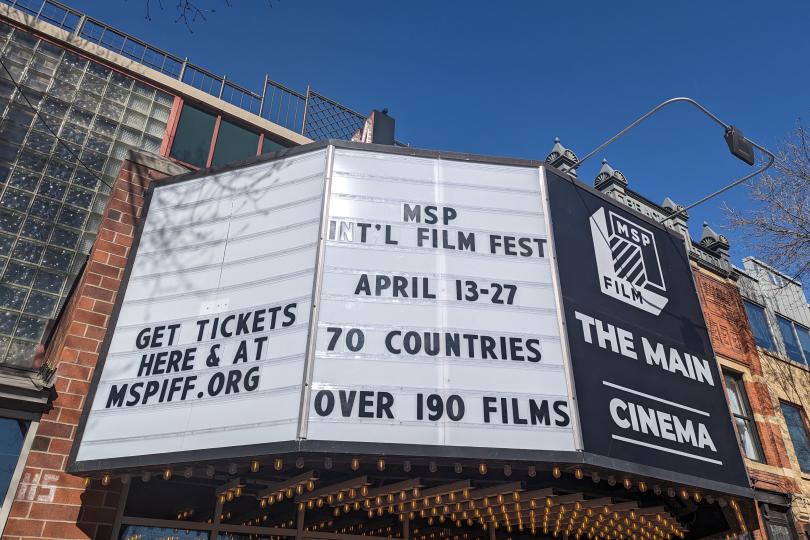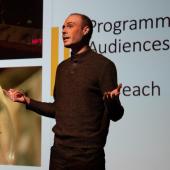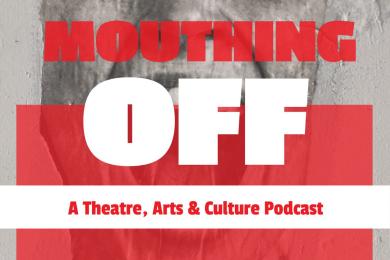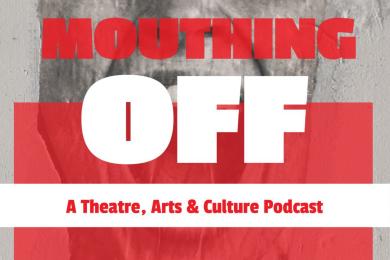In Their Words

Months of preparation and hours of film-viewing culminate in the Minneapolis-Saint Paul International Film Festival. Spread across two weeks, the 42nd edition of this long-running staple of the Twin Cities features nearly two-hundred films from across the globe. For Minnesota Playlist, I sat down with some of the key staff members of the MSP Film Society to give them the opportunity to illustrate, in their own words, the goals, challenges, and hopes they had for their first primarily in-person edition since the outbreak of COVID-19.
On adapting in a COVID-era industry:
Jesse Bishop (Programming Director):
There's always new things to learn and the industry's always changing. But it does feel like we're finally getting back into a groove, especially because it's totally in-person. We are going to have a little bit of a virtual thing during our “Best of Fest” week. Select a very few number of titles we're going to be making available on our virtual platform. But we haven't announced [which titles] yet. It's really less about curation at this point for the virtual component. It's more about who is willing to have their film in that space at a film festival at this point.
Susan Smoluchowski (Executive Director):
I think that for the most part, we all agree that COVID may be with us for the rest of our lives, but that we are out of the pandemic. We just felt that it was time [to return fully in-person]. The other interesting point is that fewer agents, filmmakers and distributors want the films that we will show in the festival to be streamed. They much prefer the idea of being back in person too, because I think the thing that we all have in common, those of us who run film festivals, is that we are devotees of the idea of watching a film in the company of strangers in a dark room. There is something so magical about that experience.
Jesse Bishop
We certainly heard from folks who asked us if we were able [to continue streaming] and we still have the technology in place. It's just, having those conversations with the people who make the movies and their plans for how to be commercially viable in a space where showing movies online has an impact on future sales of their films There’s these kinds of considerations.
Susan Smoluchowski
I think that over the next couple of years, we're going to be looking at how we can still provide virtual opportunities for people who are not able to come into the theater for whatever reason or whatever the barriers may be.
Themes and Strands
Susan Smoluchowski
Our theme is international independent cinema and original storytelling. The importance of international independent cinema in and of itself was the overriding theme, and it's the overriding reason and rationale for what we do.
Jesse Bishop
Some of the themes that we've picked up on include some more serious, reflective movies. These are all coming out of our time during the pandemic where we've turned inward, to a degree. So there's a lot of projects that maybe were shelved prior to the pandemic. And then once that whole situation unfolded, people returned to the projects that they hadn't necessarily planned on finishing at that time… Meanwhile, we know that people need a break. Cinema is also a bit of escapism, too. So fortunately, there's a lot of really fun work out there as well.
Susan Smoluchowski
Somebody asked me about our films, “Are you finding that theme of polarization in the films that you have selected for the festival?” We found that most of our storytellers are talking about [a] sense of place and identity in many of the films from one perspective or another, but there isn't a lot of talk about polarization. Which I find frankly really reassuring because we're being led down that path politically in so many ways.
Selecting and programming the films
Susan Smoluchowski
We have very strict criteria. And in our selection process, we pay attention to many different aspects of filmmaking when we select films for any of our festivals, for that matter, and storytelling and theme and originality all enter into the equation.
Kelly Nathe (Programmer and Publicity Manager):
We have a great corral of screeners. A lot of people have been screening for us for forever. They watch the films and they grade them. Then I try to watch everything… and then what happens for me, my process is, you know, the cream rises to the top and I'm keeping a running list of everything that is really good or should be in consideration.
Jesse Bishop
We've received around 600 submissions to the festival. We're looking through hundreds of films and there are thousands out there. So we're not seeing everything. It's impossible for us to see everything. But we do take into consideration a balance of subject matter and point of view.
Kelly Nathe
And then it's a matter of winnowing things down, which is really the hardest part. We call it “breaking hearts.” There can be 20 excellent films that will fit in this particular program, but you really only have room for four or five or six. Sometimes, I'll pick a film that really wows me and that becomes sort of the anchor of that theme. And then I'm placing other films that fit that theme around it.
What they’re looking forward to this year
Jesse Bishop
Our approach to panels this year is a bit different. We're trying to find new ways of getting expert conversation or deeper reflections on the films to the audience in a more immediate way. So we're placing many of these extended discussions actually in the theater after films this year.
Susan Smoluchowski
Every other day we have some kind of reception connected to a film down here in Pracna now, which you may or may not know is adjacent to the theater and has been closed for several years. We are going to be managing Pracna. We're really looking forward to hosting a lot of events. And every filmmaker who's participating in the festival this year will be invited to all of those events. And those are great opportunities to intermingle not only with visiting filmmakers for the local community, but also with audiences, because I think it's as important for a filmmaker to perhaps understand an audience's perspective on his or her film as it is for a filmmaker to interact with other filmmakers.
Jesse Bishop
I hope people get back into a mode of discovery. Most people will come to the festival because there's a movie that intrigues them and they want to go see it. But then a lot of people, when they're here, they hear about another film because they're standing in line talking to other people. And then they just take another chance or they get one of those six packs and they go to a couple of films with a couple of friends and they still have a couple left and then they just take a chance. With all the visiting guests, I want them to just feel that energy that audiences bring inside a cinema. Because they're the filmmakers, they're creating these pieces to be experienced together. And when they get to come to a festival, I do feel that's a wonderful connection that we're so proud to be making for the artists and the audiences together.




